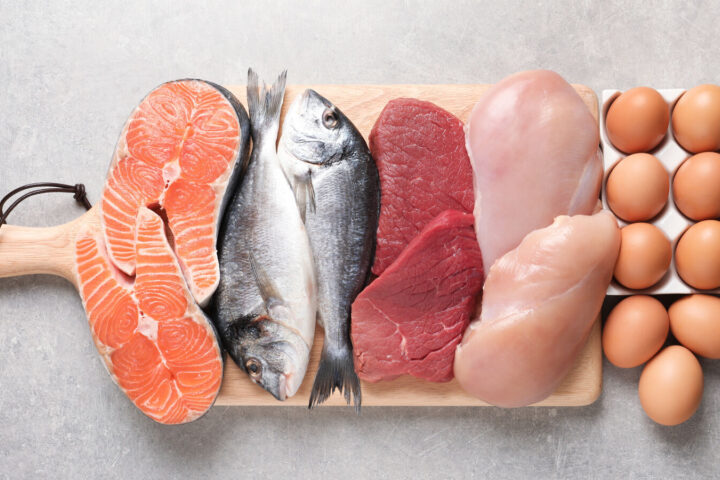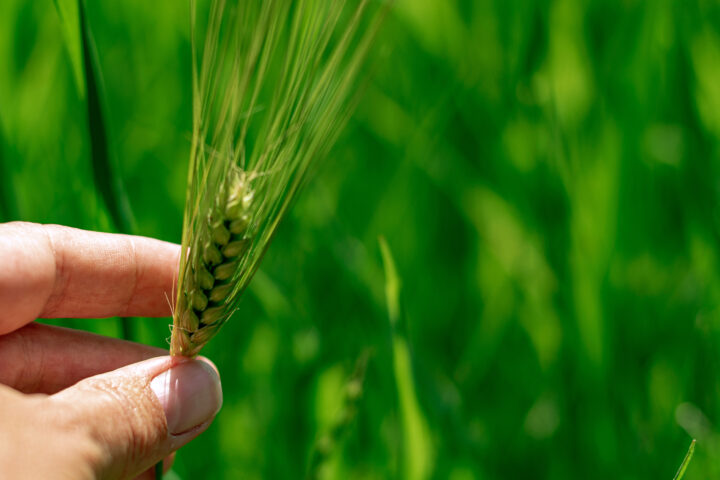
The conflict in Ukraine forces us to look beyond our own borders
The war between Ukraine and Russia threatens the food supply of many countries and is expected to have a strong impact on food prices. Markus Ritter, president of the Swiss farmers' Association, therefore calls for more domestic production – not least out of solidarity with poorer countries.
Thursday, March 17, 2022
In an interview with the "SRF" program 10 to 10, Ritter makes it clear that he does not expect the price of bread to rise sharply due to the conflict in Ukraine. Nevertheless, he calls for more cereals to be grown in Switzerland in the future. This is mainly due to solidarity with poorer countries: «I believe it is important that we take responsibility. On the one hand, for people in countries with little purchasing power, who can hardly afford the bread. We therefore do not need to stock up using large quantities of world market goods, but can also ensure our food with our own production.
Switzerland must take responsibility
Even if Switzerland only receives a small proportion of its cereals from Russia and Ukraine: The world market is a closed system: «If prices rise, it will predominantly be people with low incomes – two dollars a day – who will suffer hunger. This year could be a difficult year, and here also we have to accept our responsibility," says Ritter. In Switzerland, where currently around 40 percent of food has to be imported, it is also a matter of giving the right priority to domestic production. Ritter disagrees with a current proposal from the Federal Council to eliminate, in addition to the existing 18 percent of biodiversity-rich land, another 3.5 percent of the best soil: «Where we can produce bread, produce wheat, we should do so."
Blindspot article
Rising prices lead to hunger and revolt
The rise in the price of wheat reached a peak in the course of the conflict in Ukraine. As the "SRF" shows in various articles, this is felt mainly by poorer people in the countries of the South. For example in East Africa: Almost 90 percent of the wheat in East African countries comes from Russia or Ukraine. In Kenya, wheat flour became a quarter more expensive within a few weeks. People who live in cities and have to spend around half their income on food are hit particularly hard. However, countries in North Africa and the Middle East are also severely affected. Both Egypt and Tunisia import huge quantities of wheat from Ukraine. In Egypt, where the price of bread has been heavily subsidized for years, rising wheat prices threaten to cause hunger riots similar to those at the beginning of the Arab Spring.
In the Middle East, countries such as Lebanon and Syria source large quantities of wheat from Ukraine and Russia. Because of wars, corruption, droughts and inflation, many people in these countries have been barely able to afford bread for years. The rising prices of wheat on the world market force the governments of these countries to make serious decisions: An even stronger subsidy of the bread will tear huge holes into the state coffers. Rising bread prices, on the other hand, threaten to trigger social unrest.
Sources
Related articles

Why Strict GMO Regulation Stifles Innovation
New breeding techniques such as CRISPR-Cas are considered key to developing resilient crops, stable yields and reducing the need for plant protection products. ETH professor Bruno Studer warns that overregulating these technologies strengthens precisely those large agricultural corporations that critics seek to curb, while excluding smaller breeders and start-ups from the market.

A Superfood with Benefits and Challenges
Sweet lupin is Biovision’s “Superfood of the Year 2026.” It delivers high protein content, improves soils and supports biodiversity. Yet a closer look at agricultural practice shows that without breeding, crop protection and innovation, even this superfood remains a challenging crop.

Sales bans due to PFAS: Should we be worried?
After spectacular sales bans on fish and meat due to PFAS contamination, consumers are asking themselves: How dangerous are these substances really – and what can still be placed in the shopping basket without concern?

How German Experts View New Breeding Techniques
In hardly any other country is the idyllic image of organic farming cultivated in the public sphere as carefully as in Germany. Naturalness and rural authenticity are powerful mental refuges for many Germans. Against this backdrop, it is hardly surprising that resistance to new breeding techniques is strong – and that ignorance about the realities of organic farming sometimes appears almost deliberate.

